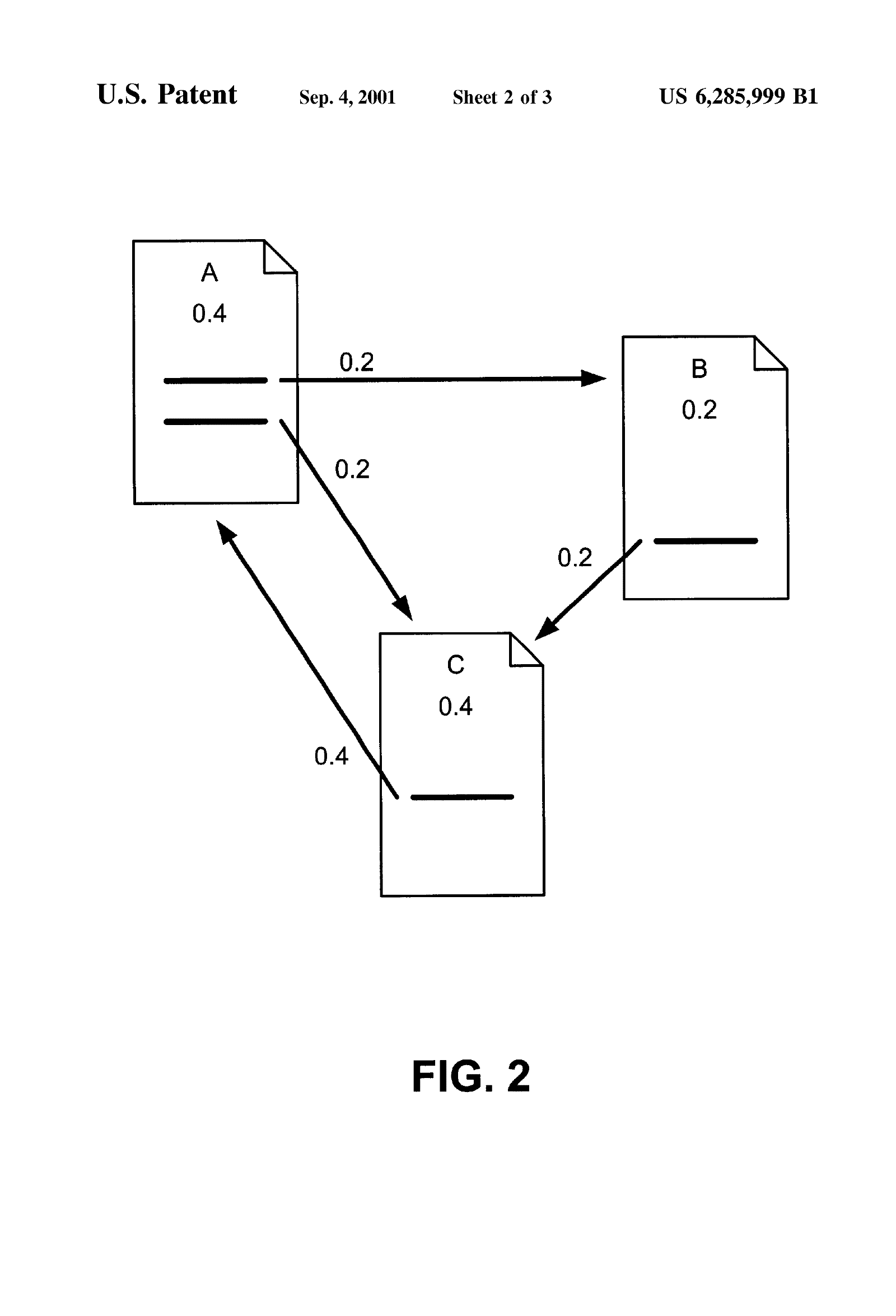In today’s digital age, it’s crucial to comprehend the concept of link equity and its significance in link building. Link equity refers to the value and authority passed on from one webpage to another through hyperlinks. These hyperlinks play a pivotal role in enhancing the search engine rankings of a website. Link building, on the other hand, involves the strategic acquisition of these valuable backlinks to improve the visibility and credibility of a website. By understanding the intricate relationship between link equity and link building, you can establish a strong online presence and propel your website to new heights of success.
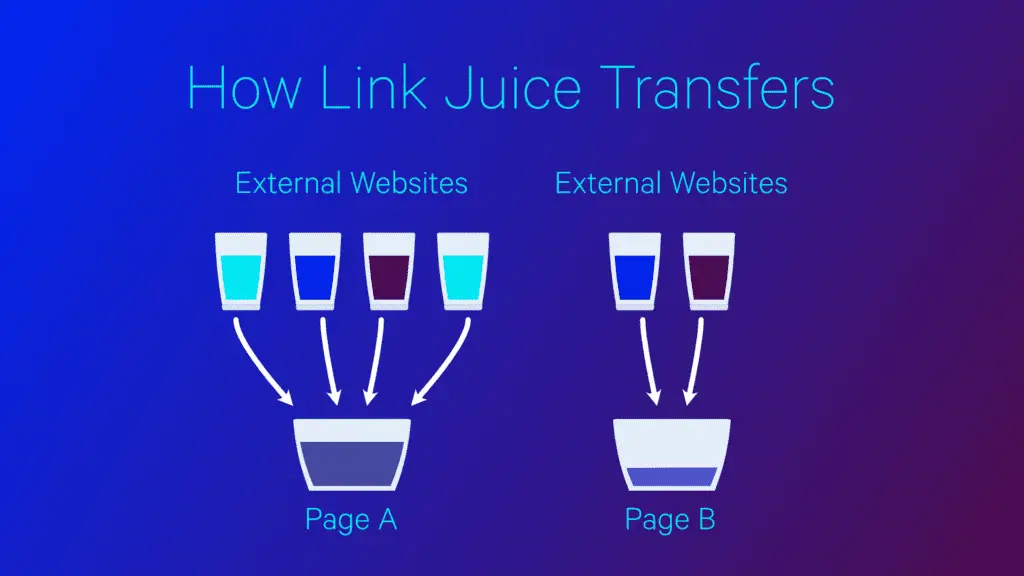
What is Link Equity
Definition of Link Equity
Link equity, also known as link juice, is a term used in the field of search engine optimization (SEO) to describe the value and authority passed from one web page to another through hyperlinks. When a website is linked to by other reputable and authoritative websites, it gains link equity, which helps to improve its visibility and rankings on search engine results pages (SERPs).
Importance of Link Equity
Link equity plays a crucial role in determining the credibility and trustworthiness of a website in the eyes of search engines. Search engines, such as Google, consider the number and quality of incoming links as a strong signal of a website’s popularity and relevance to specific topics or keywords. Websites with higher link equity are more likely to rank higher in search results, resulting in increased organic traffic and visibility.
Factors affecting Link Equity
Several factors influence the link equity passed from one website to another. These include the relevance of linked pages, the domain authority of linking websites, the page authority of the linking pages, the trustworthiness of linking sites, and the optimization of anchor text.
Link Building Basics
Definition of Link Building
Link building refers to the process of acquiring hyperlinks from other websites to your own. It is a vital part of SEO and plays a significant role in improving a website’s search engine rankings. Link building involves the strategic creation and placement of hyperlinks on external websites, with the ultimate goal of driving organic traffic and increasing the authority of the linked site.
Importance of Link Building
Link building is crucial for several reasons. Firstly, it helps search engines discover and crawl webpages, improving the visibility of your website. Secondly, it boosts organic traffic by directing visitors from other websites to yours. Lastly, it establishes authority and credibility, as websites with high-quality inbound links are seen as trusted sources of information by both users and search engines.
Types of Links
There are various types of links that are important when it comes to link building. These include:
-
Natural Links: These are editorially given links that are naturally earned through the creation of high-quality content. Natural links are seen as the most valuable because they are given based on merit and genuine interest.
-
Outbound Links: These are links from your website to other external websites. While outbound links do not directly contribute to link equity, they are important for providing additional information and resources to your audience.
-
Inbound Links: Also known as backlinks, these are links from external websites that point to your website. Inbound links are highly valuable for link equity, as they contribute to the authority and trustworthiness of your website.
-
Internal Links: These are links within your own website that connect different pages or sections. Internal links help search engines understand the structure and hierarchy of your website and can also contribute to link equity.
Understanding Link Equity
Definition of Link Equity
Link equity refers to the authority and value passed from one webpage to another through hyperlinks. It can be thought of as a vote of confidence from one website to another. When a reputable website links to another website, it is essentially vouching for its quality and relevance. The more high-quality and relevant links a website receives, the higher its link equity and search engine rankings.
How Link Equity is Calculated
While the exact algorithms used to calculate link equity are proprietary and closely guarded by search engines, several factors are believed to influence its calculation. These factors include the number and authority of incoming links, the relevance of the linking pages, the quality of the content being linked, and the trustworthiness of the linking websites.
Importance of Link Equity
Link equity is vital for SEO as it directly impacts a website’s organic search rankings. When a website has high link equity, it signals to search engines that the website is reputable, trustworthy, and relevant. This, in turn, leads to improved visibility, higher search engine rankings, and increased organic traffic.
Why Link Equity is Important
Improving Search Engine Rankings
One of the primary reasons why link equity is important is its direct impact on search engine rankings. Search engines consider links as votes of confidence from other websites. Websites with a higher number of high-quality links are often seen as more authoritative and relevant, leading to improved rankings on search engine results pages (SERPs). By building link equity, you can increase your chances of appearing at the top of relevant search results, thus driving more organic traffic to your website.
Increasing Organic Traffic
Link equity also plays a crucial role in driving organic traffic to your website. When reputable websites link to your content, they are essentially directing their audience to your website. This can result in a significant increase in visitors, as users are more likely to trust and click on links from authoritative sources. As organic traffic is highly valued and often converts at a higher rate, link equity can greatly contribute to the success and growth of your website.
Establishing Authority and Credibility
Link equity helps establish authority and credibility for your website. When other trusted and reputable websites link to your content, it acts as an endorsement of the quality and relevance of your website. This endorsement not only increases trust among users but also signals to search engines that your website is a reliable and valuable source of information. By building link equity, you can position yourself as an authority in your industry, attracting more visitors and potential customers.
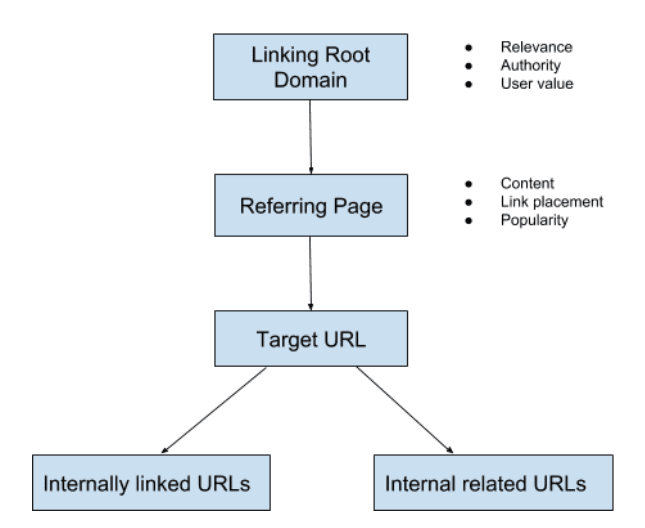
Factors Affecting Link Equity
Relevance of Linked Pages
The relevance of the linked pages plays a crucial role in determining the link equity passed from one website to another. When a website receives inbound links from highly relevant sources, it signals to search engines that the content being linked is valuable and pertinent to a particular topic or keyword. Relevance is key to building strong link equity and improving search engine rankings.
Domain Authority
Domain authority refers to the overall authority and credibility of a domain. Websites with higher domain authority are seen as trustworthy and reliable sources of information. When these websites link to another website, they pass on a higher level of link equity, boosting the authority and credibility of the linked site. Building relationships with high-domain authority websites and earning backlinks from them is an effective way to enhance link equity.
Page Authority
Similar to domain authority, page authority measures the authority and credibility of a specific webpage. Pages with higher page authority have a greater influence on link equity. When high-authority pages link to a website, it helps to build the linked site’s credibility and visibility. By optimizing your pages to enhance their authority, you can increase the link equity passed to your website.
Trustworthiness of Linked Sites
Trustworthiness is an essential factor in link equity. Search engines place great importance on the quality and trustworthiness of linking websites. When reputable and trustworthy websites link to your content, it significantly enhances your website’s link equity. Building relationships with authoritative and trustworthy sites in your industry can help you acquire high-quality backlinks and improve your website’s overall trustworthiness.
Anchor Text Optimization
The anchor text, or the clickable text of a hyperlink, plays a role in determining the relevance and value of a link. Optimizing anchor text with relevant keywords can improve the link equity passed to your website. However, it is important to avoid over-optimization or keyword stuffing, as search engines may consider this manipulative and penalize your website. Balancing relevance and natural usage of anchor text is key to maximizing link equity.
How to Build High-Quality Links
Creating Valuable Content
Creating valuable and high-quality content is the foundation of link building. By producing informative, engaging, and unique content, you increase the likelihood of other websites linking to your content. Valuable content not only attracts visitors but also establishes your website as a reliable and authoritative source, leading to more organic backlinks and improved link equity.
Guest Blogging
Guest blogging involves writing and publishing articles on other websites within your niche or industry. This allows you to tap into the audience of these websites and acquire valuable backlinks. When guest blogging, it is essential to provide valuable content that resonates with the target audience and adheres to the guidelines and standards of the hosting website. Guest blogging can be an effective way to build relationships, increase visibility, and enhance link equity.
Social Media Engagement
Engaging with your audience on social media platforms can lead to valuable backlinks. By sharing your content and actively participating in relevant discussions, you increase the visibility of your brand and encourage others to link to your content. Social media platforms also provide an opportunity to connect with influencers and industry leaders who can amplify your reach and help build link equity.
Influencer Outreach
Influencer outreach involves connecting with influential individuals or brands in your industry and collaborating on content creation or promotion. By partnering with influencers, you can tap into their audience and gain valuable backlinks. Influencers often have established websites or blogs, making their endorsements highly valuable in terms of link equity. Building relationships with influencers can significantly enhance your link building efforts.
Broken Link Building
Broken link building is a strategy that involves finding broken links on other websites and offering alternative content as a replacement. By reaching out to website owners and alerting them to broken links, you provide a valuable service while also pitching your own content as a suitable replacement. This approach can result in acquiring high-quality backlinks and improving link equity.
Internal Link Building
Internal link building involves linking different pages within your own website. By strategically linking relevant pages, you not only improve the user experience but also distribute link equity throughout your website. Internal links help search engines understand the structure and hierarchy of your site, thus improving crawlability and accessibility. This can contribute to higher search engine rankings and increased link equity.
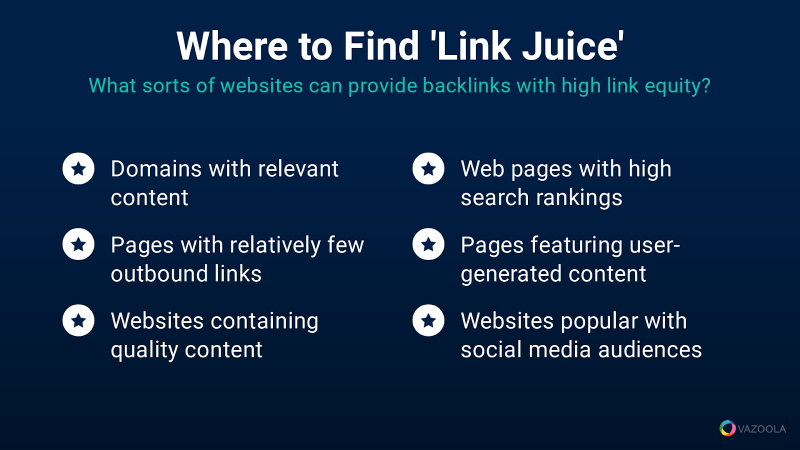
Link Building Strategies for Success
Identifying Link Building Opportunities
To maximize your link building efforts, it is essential to identify and capitalize on link building opportunities. This involves conducting research to find relevant websites, blogs, and online communities in your industry. Look for opportunities to contribute guest posts, collaborate on content, or acquire backlinks through partnerships or mentions. Utilize tools and resources to analyze competitor backlinks and discover potential link building opportunities.
Competitor Analysis
Analyzing your competitors’ link building strategies can provide valuable insights and help you identify potential link building opportunities. By identifying the websites and blogs that link to your competitors, you can reach out to these sources and offer your own high-quality content. Competitor analysis helps you stay on top of industry trends, benchmark your website against competitors, and improve your own link building tactics.
Establishing Relationships with Webmasters
Building strong relationships with webmasters and website owners is a key aspect of successful link building. By networking and engaging with influential individuals in your industry, you increase your chances of acquiring valuable backlinks. Be proactive in reaching out to webmasters, offering collaboration opportunities, and maintaining ongoing communication. Building strong relationships can lead to long-term partnerships and continuous link equity.
Earning Editorial Links
Editorial links are natural links that are given by websites based on the merit and quality of your content. Earning editorial links involves creating exceptional and valuable content that attracts the attention of website owners and influencers. By focusing on producing high-quality content that addresses industry gaps and provides unique insights, you increase the likelihood of acquiring editorial links, which carry high link equity.
Building a Diverse Link Profile
Diversity in your link profile is important for building strong link equity. Aim for a mix of different types of backlinks, including guest posts, industry directories, social media mentions, and influencer endorsements. By diversifying your link profile, you reduce the risk of relying solely on a few sources and improve the overall quality and relevance of your backlinks. A diverse link profile is seen as more natural and valuable by search engines.
Avoiding Link Building Pitfalls
Buying Links
Buying links is considered a violation of search engine guidelines and can result in severe penalties. While it may seem tempting to purchase links to quickly build link equity, it is important to remember that search engines are constantly evolving and becoming better at detecting manipulative practices. Instead of buying links, focus on creating valuable content that naturally attracts backlinks from reputable sources.
Using Link Farms
Link farms are networks of websites created solely for the purpose of linking to each other, with the intention of manipulating search engine rankings. Link farms are considered black hat SEO techniques and should be avoided at all costs. Search engines can penalize or even deindex websites that engage in link farming. Focus on building genuine relationships and earning high-quality backlinks from reputable sources.
Over-Optimization of Anchor Text
Over-optimizing anchor text by using excessive keywords or exact match phrases can raise red flags to search engines. It is important to strike a balance between relevance and natural linking. Use diverse and natural anchor text variations that accurately describe the content being linked. This will help improve the user experience and prevent penalties associated with over-optimization.
Low-Quality Directory Submissions
Submitting your website to low-quality directories with little or no editorial review can harm your link equity. Search engines typically do not recognize these directories as valuable sources of information and may view them as spammy or manipulative. Instead, focus on submitting your website to reputable industry directories that provide genuine value to users.
Neglecting Content Relevance
Linking to irrelevant or unrelated websites can negatively impact your link equity. It is important to ensure that the websites you link to are relevant to your industry, topic, or content. Irrelevant links can confuse search engines and reduce the perceived authority and relevance of your website. Prioritize quality and relevance when building your link profile.
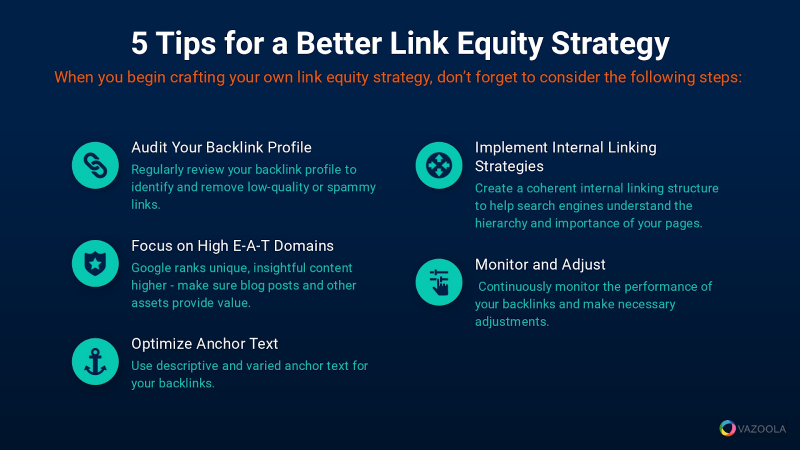
Tools for Link Building
Backlink Analysis Tools
Backlink analysis tools provide valuable insights into the backlink profile of your website and your competitors’. These tools can help you identify your strongest backlinks, uncover new link building opportunities, and monitor the health of your link profile. Popular backlink analysis tools include Ahrefs, Moz Link Explorer, SEMrush, and Majestic.
Keyword Research Tools
Keyword research tools are essential for identifying relevant keywords and optimizing your content for search engines. By understanding which keywords have high search volume and low competition, you can strategically incorporate them into your content to attract organic traffic. Some popular keyword research tools include Google Keyword Planner, SEMrush, and Ahrefs.
Broken Link Checkers
Broken link checkers help identify broken links on your website or other websites. These tools crawl webpages and alert you to any broken links, allowing you to fix them or utilize them as link building opportunities. Some popular broken link checkers are Ahrefs Broken Link Checker, Check My Links (a Google Chrome extension), and Screaming Frog SEO Spider.
Competitor Research Tools
Competitor research tools provide insights into the link building strategies, keyword rankings, and overall performance of your competitors. By analyzing your competitors’ digital footprint, you can identify gaps in your own strategy and discover new opportunities for link building. Popular competitor research tools include SEMrush, Ahrefs, and Moz.
Content Marketing Platforms
Content marketing platforms help streamline the process of content creation, distribution, and promotion. These platforms often include features that enable you to collaborate with influencers, manage social media campaigns, and optimize your content for search engines. Some well-known content marketing platforms are HubSpot, BuzzSumo, and CoSchedule.
Measuring and Monitoring Link Equity
Using Google Analytics
Google Analytics provides valuable insights into your website’s performance, including the sources of your organic traffic. By tracking referral traffic, you can measure the impact of your link building efforts and identify the websites that are driving the most traffic to your site. This information helps you assess the effectiveness of your link building strategies and make data-driven decisions.
Tracking Backlinks
There are various tools available to track and monitor the backlinks pointing to your website. These tools provide information on the number of backlinks, the authority of linking websites, and the anchor text used. By regularly monitoring your backlink profile, you can ensure the quality and relevance of your backlinks, identify and disavow spammy links, and make adjustments to your link building strategy as needed.
Evaluating Referral Traffic
Referral traffic refers to the visitors who arrive at your website through links on other websites. By evaluating the referral traffic, you can assess the quality and relevance of the websites directing visitors to your site. Review the behavior and engagement metrics of referral traffic to determine the effectiveness of your link building efforts and make adjustments to your strategy accordingly.
Monitoring Organic Search Rankings
Regularly monitoring your organic search rankings can provide insights into the impact of your link building efforts. By tracking the keywords you are targeting and observing any changes in their rankings, you can identify the effectiveness of your link building strategies. Improve your link building tactics based on the keywords that show significant movement in search engine rankings.
In conclusion, link equity and link building are crucial elements of SEO that directly impact a website’s search engine rankings, organic traffic, and authority. By understanding the definition, importance, and factors that influence link equity, you can implement effective link building strategies to improve your website’s visibility and establish credibility in your industry. Utilize various techniques like creating valuable content, guest blogging, social media engagement, and influencer outreach to build high-quality links and enhance your link equity. Remember to avoid common link building pitfalls, monitor and measure your link equity using relevant tools, and consistently evaluate and adjust your link building strategies for ongoing success.

